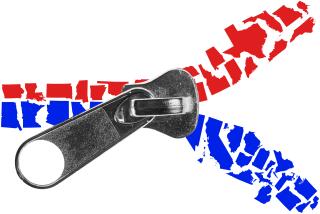Governors Unite, Will Ask Bush for Aid
- Share via
WASHINGTON — The nation’s governors gathered here Saturday to commiserate over the severe fiscal difficulties facing the states and to press their case for more federal assistance in the grim year ahead.
States face “the greatest [fiscal] crisis since at least World War II,” said Kentucky Gov. Paul E. Patton, opening the winter meeting of the National Governors Assn.
“Next year, there are going to be draconian cuts in state services and, in many states, increased taxes,” he said.
Without federal intervention, the crisis will force states to cut spending and raise taxes by an estimated $112 billion during the next year and a half, the association projects. California, the most populous state, faces the largest projected budget shortfall: at least $26 billion over the next 16 months.
The governors will plead their case for additional federal assistance directly with President Bush over the next two days: at a White House dinner with the president this evening and a scheduled two-hour business meeting with the president Monday morning. Heading the governors’ wish list is greater federal assistance for Medicaid, the state-administered health-care program for lower-income Americans, and at least partial reimbursement to the states for the additional costs of homeland security since the Sept. 11 terrorist attacks.
The Bush administration has reacted coolly to pleas for additional federal assistance. The governors, however, contend that the administration risks undermining the national economic recovery if it ignores the plight of the states.
“We do not have the capacity to get through temporary down times by running a deficit,” said Patton, a Democrat and current chairman of the governors’ group. “We have to use reserves, and when reserves are gone, we have to cut services or increase revenue on an annual basis. That is the crisis states are facing, and it’s going to affect our national economy.”
At a closed-door, governors-only lunch Saturday, all delivered a short summary of the fiscal crises their states are facing and how they are trying to resolve their shortfalls, said California Gov. Gray Davis, a Democrat. The priority for every governor was preserving funding for public education, he said.
It was a solemn beginning to the four-day meeting, in contrast to the heady days of budget surpluses that states were enjoying just three or four years ago.
“These are not the salad days for governors,” Davis said in an interview afterward. “We’re doing a lot of heavy lifting.”
Soaring Medicaid costs are digging the hole deeper for states already struggling to balance their budgets. In Kentucky, for example, the cost of providing federally mandated health-care coverage to the poor is rising by 13% a year, Patton said.
“Next year, we’re going to hit the wall,” he said. Patton called for a temporary increase in the rate of federal reimbursement to the states for Medicaid.
Other governors are asking the Bush administration to give them greater flexibility in how they administer the program.
In California, Davis is proposing cutting a number of optional health-care benefits to the poor, such as dental benefits for adults and prosthetics for amputees -- extreme steps that a number of other states are considering.
Among the governors, Davis is a leading advocate of reimbursement for states’ homeland security costs -- a tab of $500 million a year in California.
“The full cost of protecting America’s homeland should not rest with cities, counties and states,” Davis said.
Idaho Gov. Dirk Kemp- thorne, a Republican and vice chairman of the governors group, said homeland security is just one of a number of areas where the federal government needs to lend a hand to the states. But he said he didn’t expect full reimbursement.
Patton and other governors say they are united in their efforts to secure a lifeline from Washington. Kempthorne insisted that the only time partisanship would rear its head at the four-day gathering would be during the respective Democratic and Republican governors party breakfasts Monday.
More to Read
Get the L.A. Times Politics newsletter
Deeply reported insights into legislation, politics and policy from Sacramento, Washington and beyond. In your inbox twice per week.
You may occasionally receive promotional content from the Los Angeles Times.










